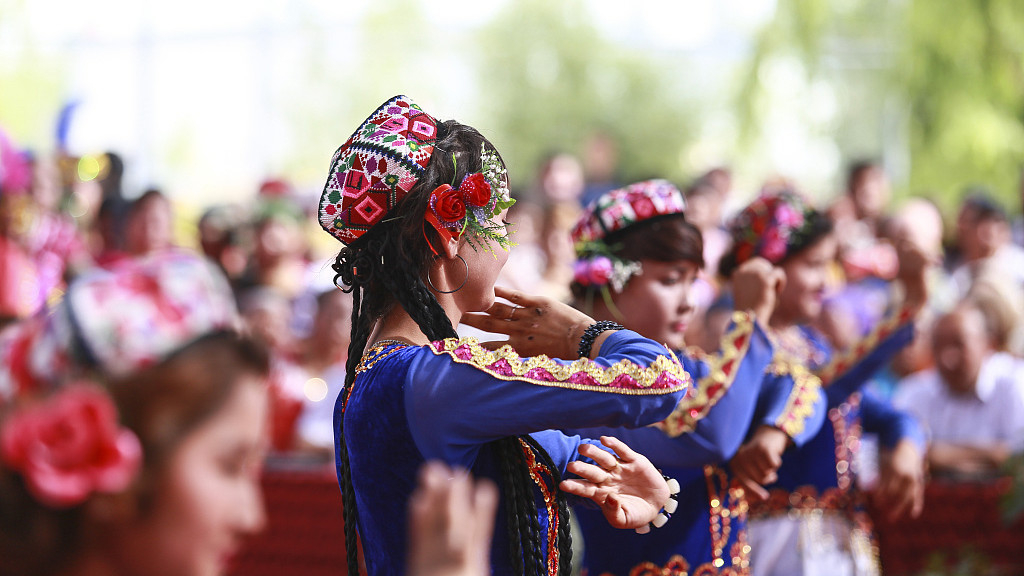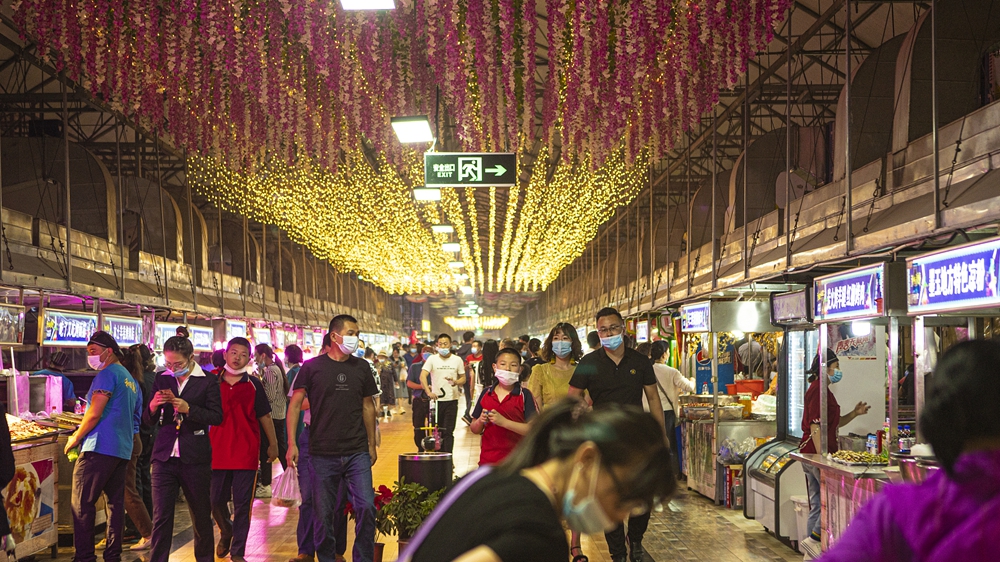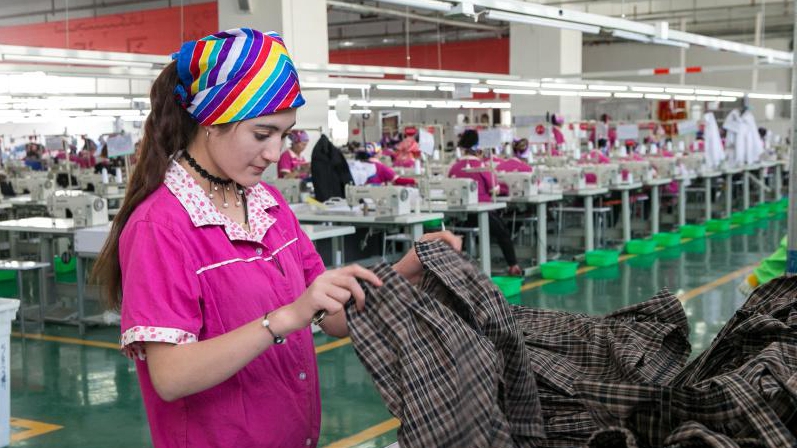00:54

China's State Council Information Office on Sunday issued a white paper detailing the demographic development in northwest China's Xinjiang Uygur Autonomous Region.
Full Text: Xinjiang Population Dynamics and Data
The population growth in Xinjiang from 2000 to 2020 was 1.15 percentage points higher than the national average in the compound annual growth rate (CAGR), according to the white paper titled Xinjiang Population Dynamics and Data.
According to data from the sixth national census conducted in 2010, the population in Xinjiang was 21.82 million, an increase of 3.36 million with a CAGR of 1.68 percent over 2000, the white paper said.
Preliminary data from the seventh national census conducted in 2020 showed that the number increased by 4.04 million to reach 25.85 million with a CAGR of 1.71 percent, said the document.
Besides, the infant mortality rate in Xinjiang went down from 26.58 per 1,000 in 2010 to 6.75 per 1,000 in 2020, according to the white paper, adding that the mortality rate for children under five years of age, and maternal mortality rate in the region declined from 31.95 per 1,000, and 43.41 per 100,000 in 2010 to 10.91 per 1,000, and 17.89 per 100,000 in 2020, respectively.

A bustling night market in Hotan City, Xinjiang Uygur Autonomous Region, northwest China, May 30, 2021. /CFP
A bustling night market in Hotan City, Xinjiang Uygur Autonomous Region, northwest China, May 30, 2021. /CFP
Locals enjoy better growth and religious freedom
The Uygur population grew with a CAGR of 1.67 percent during the first two decades in the 21st century from over 8.34 million to over 11.62 million, according to the white paper.
The growth rate was much higher than that of the country's ethnic minority population, which stood at 0.83 percent, said the document.
The economic, social and family status of women of all ethnic groups in Xinjiang has continued to improve, said the document, adding that the improved status has allowed them to have more opportunities to obtain secondary and higher education, and take an active part in economic and social life.
Meanwhile, the number and proportion of women in employment have significantly increased. In 2019 for example, 228,100 women joined the workforce in cities and towns across Xinjiang, accounting for 47.43 percent of the total newly employed in urban areas, the white paper said.
The region protects freedom of religious belief and ensures orderly practice of religion, according to the white paper.
It also said believers are free to engage in lawful religious activities, including worship, fasting, and observance of religious festivals, in accordance with religious doctrines, canons and traditions, at religious venues or in their homes.
To meet believers' legitimate religious needs, Xinjiang has been actively improving the conditions of religious venues and their surrounding environments by means of renovation and relocation, expanding existing facilities and building new ones, providing greater convenience for religious believers, it said.

A woman works at a factory in Kashgar, northwest China's Xinjiang Uygur Autonomous Region. /Xinhua
A woman works at a factory in Kashgar, northwest China's Xinjiang Uygur Autonomous Region. /Xinhua
Western rumors refuted
Accusations of "suppression of birth rates" and "demographic genocide" in Xinjiang are utterly groundless, said the white paper, adding that anti-China forces have accused Xinjiang of carrying out "demographic genocide" by forcing birth control on the Uygurs and other ethnic minority groups to suppress their birth rates.
It said Xinjiang implements its family planning policy in accordance with the law, and forced birth control and pregnancy tests are strictly prohibited.
It is up to individuals to decide whether or not to use contraceptives and how to use them. No organization or individual may interfere with this freedom, said the document.
As for the "forced labor" lie, the white paper pointed out that various anti-China forces suppress the development of industries in Xinjiang such as cotton, tomatoes, and photovoltaic products, and undermine China's participation in global industrial chain cooperation.
Their acts effectively deprive the local people in Xinjiang of their rights to work and development and opportunities to move out of poverty and backwardness, with the intent of stirring up trouble in the region, said the document.
Workers of all ethnic groups in Xinjiang, including graduates from the vocational education and training centers, always choose their jobs of their own volition, and there is no coercion of any kind, said the document.
Speaking of the boarding schools, the white paper put that the schools can help consolidate universal access to compulsory education and promote balanced education.
Due to Xinjiang's vast land area of 1,664,900 square kilometers, villages and towns are far from each other and residents in some farming and pastoral areas are sparsely distributed, making the daily travel between home and school very difficult for some students, according to the white paper.
Establishing boarding schools is a standard practice in China's compulsory education, and it is up to students' families to decide whether to board or not, said the white paper.
Source(s): Xinhua News Agency

